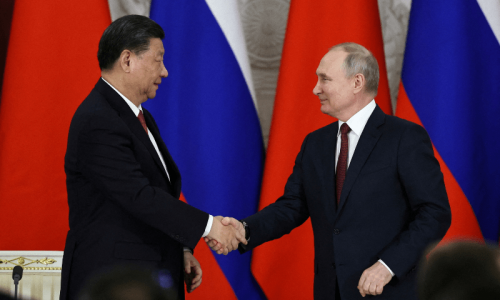Bernard Lewis, a pre-eminent scholar of Middle Eastern history whose work (The Arabs in History, The Middle East and the West, The Emergence of Modern Turkey) profoundly shaped Western views of the region — including fears of a “clash of civilisations” — but also brought scorn from critics who considered his views elitist and favouring Western intervention, died on Sunday at an assisted-living facility in Voorhees, New Jersey. He was 101.
Dr Lewis’ prolific scholarship — including more than 30 books, hundreds of articles and competence in at least a dozen languages — traced fault lines that define the modern Middle East, such as sectarian divisions, the rise of radical Islamists and entrenched dictatorships, some backed by the West.
Along the way, Lewis often gained a privileged vantage point for events in the region during a life that spanned the era of T.E. Lawrence, oil discoveries in Arabia and showdowns against the so-called Islamic State.
He roamed souks and back streets for British intelligence during World War II; had tea in Golda Meir’s kitchen in honour of his ardent support of Israel; dined with Pope John Paul II; and was hosted in the Peacock Throne court of Iran’s former shah.
The London-born Lewis also built a parallel reputation that spilled far beyond academia. It brought him into the folds of Washington’s power brokers and policy shapers after his move to Princeton University in 1974.Lewis — Jewish by birth and uncompromising in attitude — increasingly became a target of detractors who ridiculed him as an embodiment of Western-centric arrogance and the West’s attempts to remain the big brother of the Middle East. Even as Lewis kept up an astonishing pace of writing and interviews into his mid-90s, he was often dogged by questions over his close ties to the architects of the invasion of Iraq, including then-Vice President Richard Cheney and two of Jackson’s proteges, then-Deputy Defence Secretary Paul Wolfowitz and security adviser Richard Perle.
Lewis was a man of expansive intellectual appetites. He immersed himself in topics as varied as Sufi mystic poetry and intricacies of Islamic law. He crafted a style that combined a professor’s gravitas, a pundit’s wit and a patrician’s confidence, despite his upbringing outside England’s upper crust as the son of a modestly successful Jewish real estate agent and a housewife.
In his works — including back-to-back bestsellers after the 9/11 attacks, What Went Wrong and The Crisis of Islam — Lewis increasingly courted a mass audience. —The Washington Post
Published in Dawn, May 21st, 2018











































Dear visitor, the comments section is undergoing an overhaul and will return soon.